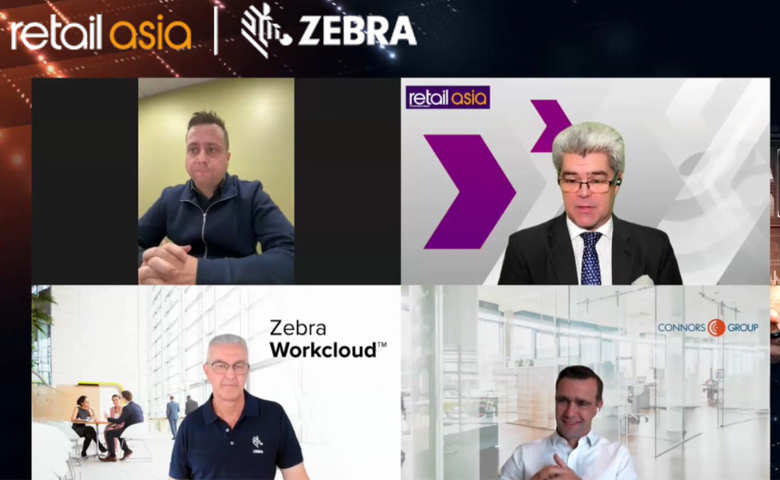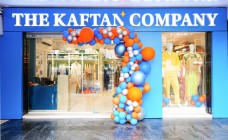Why technology is really about transforming business processes and navigating challenges in retail
By Retail4Growth Team | July 05, 2024
A recent webinar hosted by Retail Asia and Zebra Technologies titled "Shaping the Modern Store: Navigating Challenges with Innovation in Retail" featured expert insights on the significance of innovative solutions in improving retail business efficiency and addressing common challenges.

Technology adoption is increasingly becoming inevitable as retailers grapple with multiple challenges such as optimising inventory, enhancing customer experience, and addressing workforce management issues. The role of innovative tech solutions and strategies in helping retailers remain competitive and future-ready was the focus at the webinar hosted by Retail Asia and Zebra Technologies titled "Shaping the Modern Store: Navigating Challenges with Innovation in Retail" on 30 May 2024. The event featured expert insights from industry leaders including Darren Bretherton, Software Solutions Lead for Australia & New Zealand at Zebra Technologies; Josh Cunningham, Product Owner (Voice Network) at Woolworths Group; and Robert Eichfeld, Director at Connors Group.
To highlight Zebra Technologies’ capabilities in addressing the said challenges, Bretherton presented Zebra Workcloud, a comprehensive enterprise suite designed specifically for retail.
Bretherton explained the four key pillars of Workcloud — workforce optimisation, enterprise collaboration, demand intelligence, and inventory optimisation — whilst providing a look at the Workcloud timekeeping and scheduling solution, which integrates artificial intelligence (AI) and machine learning for demand forecasting and complex scheduling.
“Our strategic products can help provide certainty in uncertain times and lower costs in a time of high cost of living,” he said.
Bretherton also delved into Zebra’s “The Modern Store” framework, which emphasises the use of technology to enhance efficiency, customer experience, and overall business performance.
Creating customer-centric stores
During the discussion, the three industry leaders explored the benefits of SaaS-based tools to retailers and how they pave the way to creating customer-centric stores.
Cunningham specifically looked at the use of physical hardware solutions across many retailers but noted the limitations that such hardware solutions pose. He noted that a SaaS model allows users to use any single device to do their jobs.
“The big thing around SaaS is the standards, design, and flexibility that it gives back to our team members, which has been the cornerstone of the results. That's also effectively enabled us to reduce the total amount of devices that our team members need to carry,” he explained.
In addition to this, Eichfeld highlighted the capability of SaaS tools to handle large amounts of data. “They provide a lot of data and analytics that you can use further in your business to really identify your customers, track your customers for different parts of your organisation, and tailor your offerings,” he said.
Eichfeld also gave retailers some recommendations on approaching the integration of new technologies into their existing infrastructure. “Technology is always exciting and shiny. It's really [about] understanding how that influences your process in the business and what you need to change,” he said. In addition, he highlighted the need to have “champions” who will carry the message and introduce any new technologies that are being integrated into a business.
“Retail is always changing and always full of challenges. The good news is there are always solutions out there. The key is to understand your problem, define your problem, understand first how you need to change, pick the right solution for you, and then make it happen,” he said.
Participants in the webinar were likewise able to join the discussion and ask questions for the panellists, allowing them to weigh in on the emergence of RFID in retail.
Technology and retail workers
Moving on to AI in shaping modern stores, Bretherton underscored how Zebra sees AI in retail as a “big enabler” for frontline workers, providing equal access to key product information and empowering them to become experts instantly. “As AI and automation take over routine tasks, employees are able to focus more on complex tasks and strategic roles,” he said.
More than the technology, both Cunningham and Eichfeld spotlighted the need to understand the customer’s needs, especially since they will be the ones to use the technology and determine a company’s return on investment.








